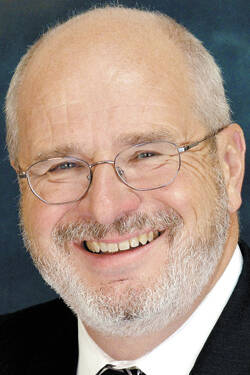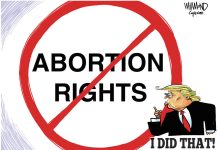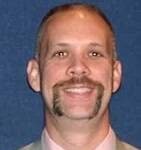John Krull
For The Republic
Some years ago, a friend of mine became part of a big news story.
I was working for a newspaper at the time. My editors came over and asked if I could help with the story.
I told them the truth. I had information about the story that had come to me as a friend, not as a journalist. It wouldn’t be right to betray the confidence of a friend, so I said I had a conflict of interest and should be kept away from the story.
The story played out over several days. As is almost always the case with big and messy stories, some inaccuracies crept in.
One error particularly annoyed and embarrassed my friend, who asked that I tell the editors about it.
“I can’t do that,” I said. “Once I said I had a conflict and that I was out, I was out. I can’t step back into the story to help you if I’m not willing to help them, too.”
In other words, if I wasn’t going to allow the newspaper to exploit my relationship with my friend for a story, I couldn’t allow my friend to exploit my relationship with the paper, either. To paraphrase Gertrude Stein, a conflict is a conflict is a conflict.
I’ve thought about how I handled that situation many times over the years.
My solution, such as it was, likely pleased no one.
My editors didn’t get access to the information I had. My friend had to endure erroneous reporting that added pain to the process. And the paper’s readers didn’t get a complete and accurate story.
No one won.
But that’s the way it is with most ethical challenges. None of the choices presented is painless or easy.
As often as I replay that episode in my thoughts, I cannot think of a way I could have done differently without betraying a trust somewhere.
Sometimes, doing nothing is the only way to avoid doing something wrong.
I’ve thought about that long-ago incident as the controversy surrounding CNN’s Chris Cuomo has played out.
CNN suspended Cuomo. The cable news network did so because Cuomo helped his brother, former New York Gov. Andrew Cuomo, when the latter’s political career was in freefall following allegations from multiple women that the governor had sexually assaulted and harassed them.
Chris Cuomo, an investigation revealed, aided his brother’s political team in finding out when damaging stories were about to break, shaping messaging about the accusations and in other ways that he previously had not revealed.
The CNN anchor says in his defense that he never went on the air and reported on his brother’s story, which is a fair point.
Nonetheless, he clearly crossed a line.
If he had a conflict of interest, it cut both ways.
If he wasn’t going to report on his brother, he shouldn’t have reported to his brother, either.
He deserved to be suspended.
But this episode also should prompt some soul-searching on the part of CNN and other news organizations as well.
Chris Cuomo had reason to be confused about where the line was or should be drawn. In the pandemic’s early days, he contracted COVID-19 and was quarantined.
At that time, Andrew Cuomo was being lionized as the governor who most understood the pandemic’s threat and who spoke to that threat more cogently than then President Donald Trump did.
CNN began airing conversations between the two brothers, chats that were filled with fraternal teasing and joshing. Those episodes became a national sensation. People joked about how they were becoming “Cuomosexuals” because they found the brotherly bantering so charming.
This is where the rub is.
CNN was willing to exploit Chris Cuomo’s relationship with his brother when there was benefit to the network in doing so. But it was wrong for Cuomo to exploit his relationship as a CNN anchor to benefit his brother.
That’s not right.
If it was wrong for Chris Cuomo to try to help his brother through a political crisis — and it was wrong — it also was wrong for CNN to allow its anchor to interview his brother in any capacity at any time.
Because conflicts of interest don’t just cut one way.
That’s what makes them conflicts.
John Krull is director of Franklin College’s Pulliam School of Journalism and publisher of TheStatehouseFile.com, a news website powered by Franklin College journalism students. Send comments to [email protected].





